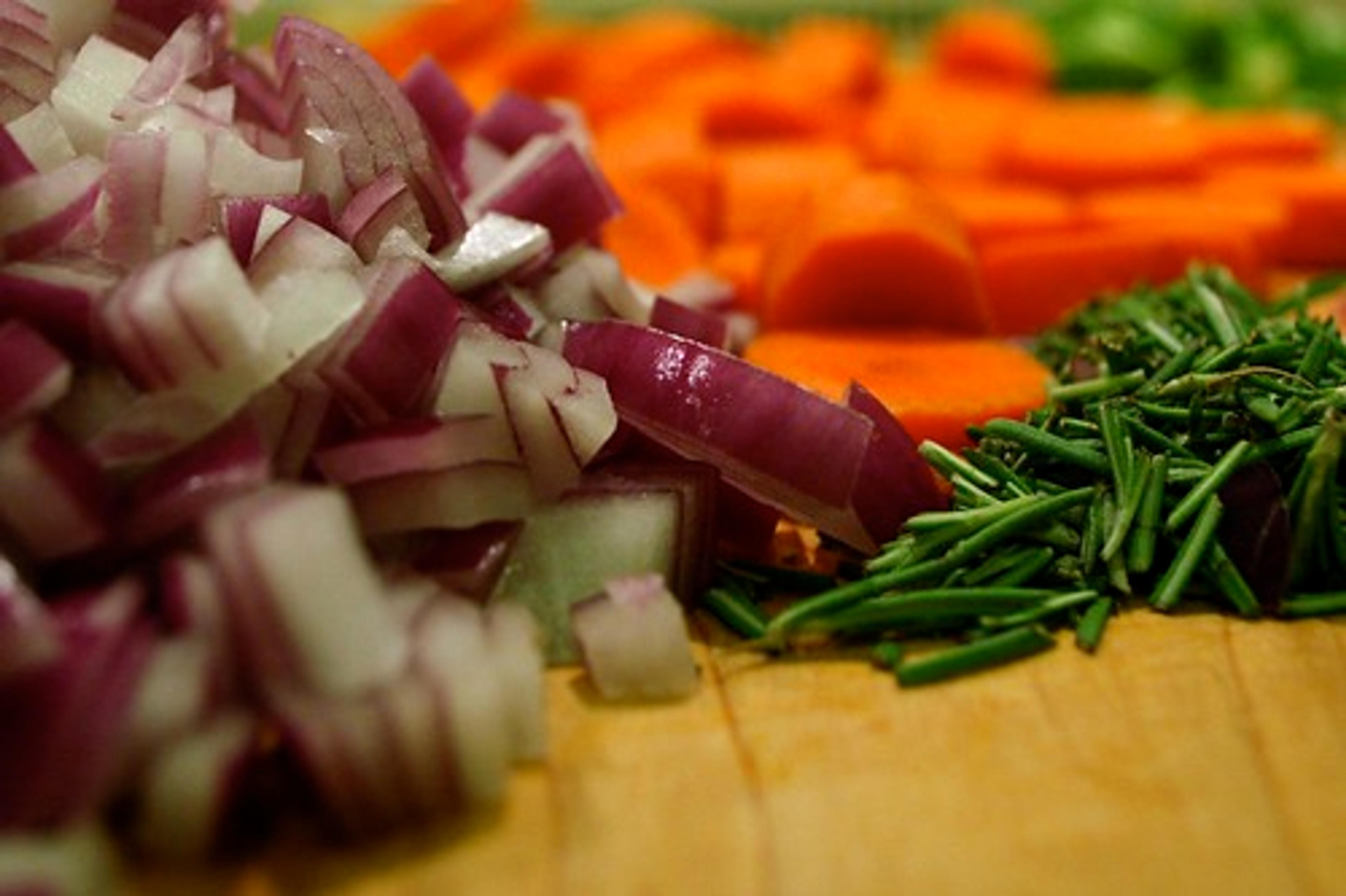So, you’re thinking about becoming vegetarian? Here are 6 things you should know

Niccole LaDue
| 3 min read

When I tell people I’m a vegetarian it doesn’t take long for the questions to start piling in. Why do you do it? Do you get enough protein? What do you even eat? Do you like tofu? The list goes on and on. It seems the reason for all the questions comes back to a misunderstanding of vegetarianism.
Many people I’ve talked to about vegetarianism confess that they’ve actually wanted to try it themselves, but they’re intimidated. Just like any big change, it takes time and dedication.
The first thing you want to consider is your reason for making the change. It might be about ethics, religion, health or a combination of those things, but whatever the reason stick to it. Here are some other things you should consider if you’re thinking about becoming vegetarian.
You’ll need to do some research.
It’s important to know and understand your nutritional needs. Read up on vegetarian nutrition. Also, you may want to discuss your decision with your doctor or find a registered dietitian who can help you develop a personal nutrition plan.
It’s important to know and understand your nutritional needs. Read up on vegetarian nutrition. Also, you may want to discuss your decision with your doctor or find a registered dietitian who can help you develop a personal nutrition plan.
It’s not all or nothing.
Just because you’ve decided to become vegetarian does not mean you have to quit animal products cold turkey (no pun intended). Many vegetarians still consume eggs and dairy products. Maybe you start with something simple like meatless Mondays and then gradually progress from there. The point here is to do what works best for you.
Just because you’ve decided to become vegetarian does not mean you have to quit animal products cold turkey (no pun intended). Many vegetarians still consume eggs and dairy products. Maybe you start with something simple like meatless Mondays and then gradually progress from there. The point here is to do what works best for you.
You don’t have to live on tofu.
Tofu is a versatile and delicious food, but you don’t have to have it at every meal. In fact, you don’t have to have it at all! Although it can be a good source of protein, there are many other vegetarian protein sources. Some of them are actually better for you than tofu. Quinoa, veggies burgers, nuts, seeds, grains, legumes, and many vegetables are some other delicious sources of protein.
Tofu is a versatile and delicious food, but you don’t have to have it at every meal. In fact, you don’t have to have it at all! Although it can be a good source of protein, there are many other vegetarian protein sources. Some of them are actually better for you than tofu. Quinoa, veggies burgers, nuts, seeds, grains, legumes, and many vegetables are some other delicious sources of protein.
You’ll try new foods.
You will probably find that as you get more comfortable with your new lifestyle, you’ll be tempted to try new foods. Trying new foods and experiencing new flavors is an important part of being vegetarian. Don’t be afraid to experiment at home with your own seasonings and ingredients. There are many free recipes available online.
You will probably find that as you get more comfortable with your new lifestyle, you’ll be tempted to try new foods. Trying new foods and experiencing new flavors is an important part of being vegetarian. Don’t be afraid to experiment at home with your own seasonings and ingredients. There are many free recipes available online.
You’ll save money in the long run.
While you’re experimenting with new foods, you may find you’re spending a bit more than usual on food. Also, stocking your pantry with new seasonings and vegetarian options can be costly at first. But, once you get your pantry stocked and you learn what you like, you may find that your grocery bill is less than it’s ever been. Buying fresh, in season produce is not only better for your health, but easier on your wallet. Plus you won’t be buying those expensive cuts and packages of meat.
While you’re experimenting with new foods, you may find you’re spending a bit more than usual on food. Also, stocking your pantry with new seasonings and vegetarian options can be costly at first. But, once you get your pantry stocked and you learn what you like, you may find that your grocery bill is less than it’s ever been. Buying fresh, in season produce is not only better for your health, but easier on your wallet. Plus you won’t be buying those expensive cuts and packages of meat.
Some people will probably annoy you.
Once your family, friends, and peers find out that you’re vegetarian you too can expect to be flooded with questions. Prepare yourself with well-informed, polite answers. Although some people will applaud you, others will not understand or agree with your decision, and that is okay! Remember you’re doing this for you.
Once your family, friends, and peers find out that you’re vegetarian you too can expect to be flooded with questions. Prepare yourself with well-informed, polite answers. Although some people will applaud you, others will not understand or agree with your decision, and that is okay! Remember you’re doing this for you.
Remember, this is a lifestyle change and it will take time. Take the time you need to get informed and make the best decision for you and your health. Best of luck to you!
Check out two of my favorite vegetarian resources:
No Meat Athlete
Vegetarian Times
No Meat Athlete
Vegetarian Times
Photo credit: gfhdickinson





